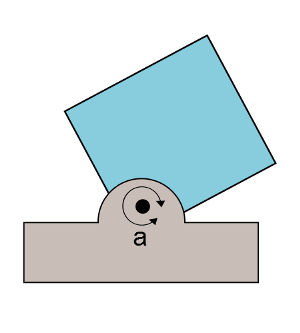Latest Blog Posts
Version 5.0.2
This update focuses on a few minor performance improvements, fixes and enhancements.
Version 5.0.1
This update fixes a few issues discovered while enhancing the samples project. This update does change the behavior of the SolvedContact.isSolved method and removes the code that resets the enabled and tangentVelocity properties on the ContactConstraint.
Version 5.0.0
This major update overhauls the org.dyn4j.dynamics.joint package. This update allows the creation of new joints with an arbitrary number of bodies (whereas only one-body or two-body joints were possible before). This release sees all joints inherit from standard interfaces for things like limits, motors, and springs with the intent to make the API surface identical among all the joints.

